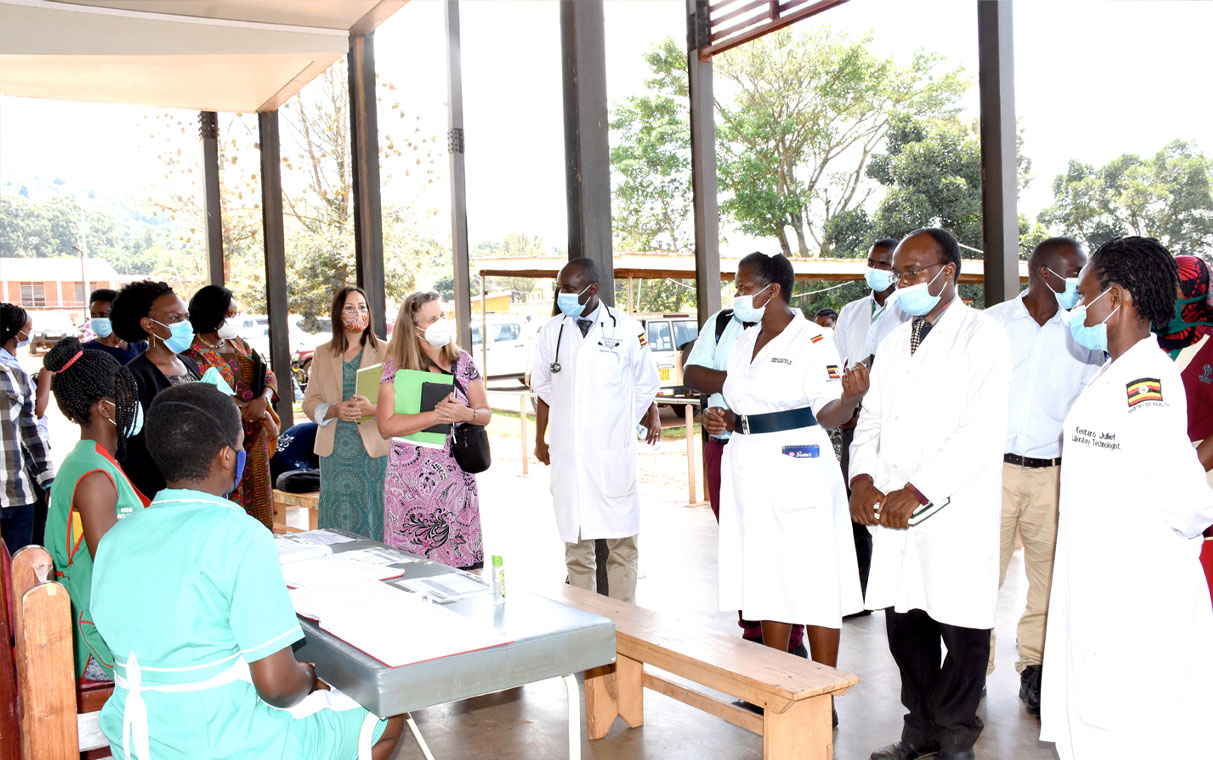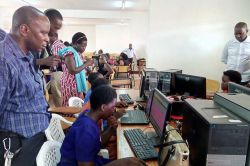Breaking News
- Flexible Remote Work Opportunity for University Students: Earn $100–$250 Per Month ...Read More
- Ministry of Education and Sports Azerbaijan Government Scholarships For 2025-2026 Academic Year ...Read More
- Government Sponsorship Undergraduate Admission Lists 2025-26 for Makerere University ...Read More
- Ministry of Education And Sports: Egyptian Government Scholarships 2025-2026 Academic Year ...Read More
- Ground Breaker Full Scholarship for girls to study Software Engineering 2025 July Intake ...Read More
- Tony Elumelu Foundation Entrepreneurship Programme (TEEP) 2025 for young African Entrepreneurs ...Read More
- DESIGNING FUTURES 2050 International Design Competition 2025 (€15,000 prize) ...Read More
- Ground Breaker Full time Scholarship for girls to study Software Engineering 2025 Intake ...Read More
- Ministry of Education And Sports Algerian Vocational Training Scholarships for 2024-2025 AY ...Read More
- Ministry of Education and Sports Advert for the Algerian Government Scholarships for 2024-2025 ...Read More
 Click Here To Apply Now
Click Here To Apply Now
Courses at Mildmay Institute of Health Sciences
Fees Structure / Prospectus
What is making news at Mildmay Institute of Health Sciences
Tweets by MIHSUgandaStudent Experiences at Mildmay Institute of Health Sciences
Facilities at Mildmay Institute of Health Sciences
About
Mildmay Institute of Health Sciences (MIHS) was set up to transform health service delivery through training and education, having existed since 1998 as a directorate under Mildmay Uganda. Mildmay Uganda (MUg) is a Faith-based National Non-Governmental Organisation (NNGO) operating health care, technical assistance, research and education programmes in Uganda and the region, recognised as a Centre of Excellence (CoE) by the Government of Uganda, Ministry of Health. The training and education directorate was set up to lead the education function and grew rapidly to deliver academic programmes that required accreditation from the National Council of Higher Education (NCHE). NCHE accredited MUg to deliver academic programmes in 2009 under a provisional license, which has since necessitated review and final classification and certification. By Law, the NCHE and other accrediting bodies require that for proper management and functionality, an education institute must be autonomous (a separate entity from the parent or any other entity related to it) with clear governance, management, finance, and operational structures. In view of that, and in line with the MUg 30-year master plan, the MUg Board, made a decision to transform the Training & Education Directorate into an autonomous institute of higher learning - Mildmay Institute of Health
Sciences. MIHS was incorporated as a company limited by shares fully owned by MUg, to consolidate and grow the work of the training and education directorate. Initially focused on capacity building through short courses in HIV&AIDS care, treatment and support, the directorate runs three schools/departments; 1) Nursing and Paramedical schools 2) other Academic Programmes and 3) Short Courses and Consultancies. This strategic plan provides a framework within which MIHS will, in the next five (5) years, contribute to government and other stakeholders’ efforts to address critical gaps in human resources for health systems in Uganda and the region.
In the next 23 years, the remaining part of Vision 2040, Uganda’s focus for its citizens is to achieve a high-quality standard of living through improving the quality of its population, health and nutrition status, literacy and numeracy, housing, water and sanitation conditions and provision of social protection for the citizenry. Particularly, Uganda will continue to address issues of life expectancy, maternal mortality ratio, and improving health service delivery through a paradigm shift from facility-based to a household-based health delivery system. which is still way below the Sustainable Development Goals targets (UN, 2015) of 70/100,000 live births (MMR), 25/1000 (under five), and 12/1000 (infant mortality) respectively. This picture is similar to other countries within the East African region. Such indicators pose a heavy burden to the health system which is overwhelmed with patient inflows and an inadequate health workers mix. The Ratio of health workers to Patients in Uganda; Doctor is 1:24,000; Nurse is 1: 1,700; Midwives 1: 9,000; Dentists is 1: 77,000; Laboratory technician 1: 16,000; Occupational Therapist 1: 433,000; Environmental health officer 1: 27,000 (Health Care System Assessment Report MOH-Uganda, 2012).
In the health training and education sub-sector, there has been increasing students’ enrolment in the available institutions with the gross enrolment rate standing at 6.2% while the growth of training institutions is averaging at 1.2% per year. This implies the current health training institutions are still insufficient to address the human resource needs of the health sector.
The MUg 30-year master plan was designed to contribute to government efforts to address critical gaps in health care, education and research. The strategic planning process has been heavily informed by benchmarks from other Institutions around the globe such as the University of Manchester, and the Uganda Christian University, among others. Lessons have also been drawn from the German education model. Every aspect of this strategic plan is informed by the core mission's aspiration and the vision of being ‘A leader in health professional development. Based on a Christian foundation, MIHS embraces the MUg leadership philosophy
Source * https://www.mihs.ac.ug/about-us/history-background-mihs





























